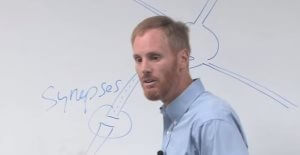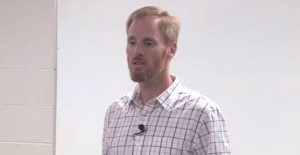SCIENCE AND ADDICTION
In the last few decades there has been a great deal of scientific investigations into the nature of addiction, how it affects the brain and how it is influenced by social, emotional, spiritual and physical factors. These videos are a small sampling of these findings, but provide some overview of where the scientific community is concerning their outlook on addiction.
From the standpoint of this website, it is interesting to see how these scientific findings often mesh with the practices that have been developed in the 12 step community. In the case of the 12 step community, science was used when possible (e.g., see the note from Dr. Silkworth in the Big Book), but practices were often developed based on just a sincere and earnest desire to find out what worked for those seeking freedom from their life-threatening addiction. Out of that sincere desire to find what worked, though, many practices were developed that have only later been corroborated by scientific findings.
Click the appropriate View button below to watch the associated video.
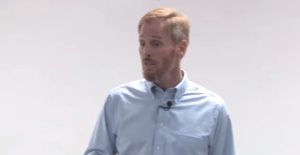
Understanding
Dr. Todd Carran gives an overview of the disease of addiction and briefly introduces the changes in the brain during addiction.
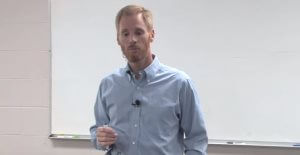
Psychology
Dr. Todd Carran talks about the psychological factors that make people more susceptible to the disease of addiction.

Consequences
Dr. Todd Carran talks about the medical consequences of addiction and its ability to damage every organ system in the body.

Brain Imaging
Dr. Nora Volkow, Director of the National Institute on Drug Abuse (NIDA), discusses what happens in the human brain from addiction to drugs.
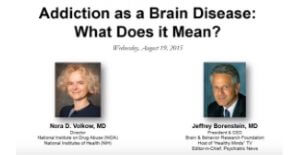
Brain Disease
Dr. Nora Volkow of the National Institute of Drug Abuse (NIDA) presents a seminar on "Addiction as a Brain Disease: What Does it Mean?"

As Disease
Dr. McCauley presents reasons to consider addiction as a disease, based on the dopamine hypothesis, and how that translates to treatment.



